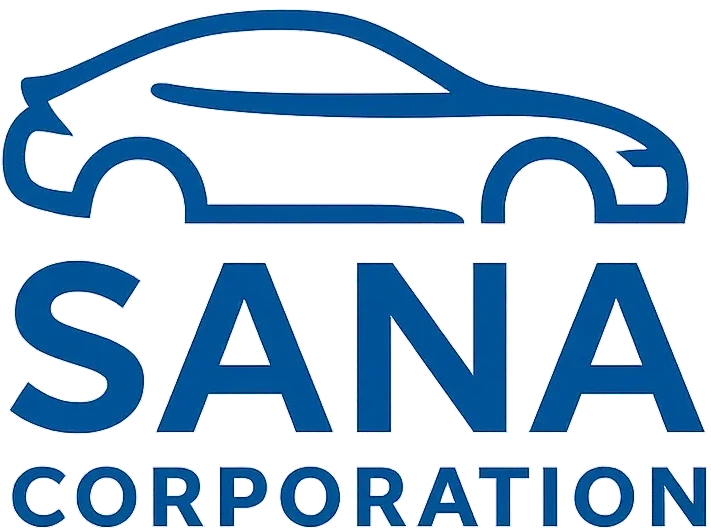The Japanese auto auction system represents the backbone of the country’s used vehicle market, providing the primary supply channel for export companies like Sana Corporation and international buyers seeking quality pre-owned vehicles. Understanding how to effectively navigate this complex system is essential for maximizing success in Japan’s competitive automotive marketplace.
Japan operates over 200 auto auction groups throughout the country, including major players such as JAA, JU Group, TAA, USS, and ZIP. These auction houses collectively handle millions of vehicles annually, making Japan the world’s leading exporter of used cars. The system’s reputation for transparency and thoroughness in vehicle evaluation has made it the preferred source for international automotive imports.
Auction participation requirements begin with securing proper licensing and registration. Domestic dealers must obtain secondhand dealer licenses to participate in auctions, while international buyers typically work through licensed export agents who act as bidding representatives. Companies like Sana Corporation provide comprehensive export solution services that include auction access, bidding representation, and complete transaction management.
The auction sheet system forms the foundation of Japan’s transparent vehicle evaluation process. These detailed inspection reports provide comprehensive information about each vehicle, including mileage verification, accident history, mechanical condition, and overall quality ratings. Auction sheets use standardized grading systems that allow buyers to make informed decisions based on objective vehicle assessments rather than subjective descriptions.
Vehicle grading standards typically range from Grade 1 (poor condition) to Grade 5 (excellent condition), with additional designations for specific conditions such as accident history or modification status. Grade 4 and above vehicles generally represent excellent condition with minimal wear, while Grade 3 vehicles may show normal usage signs but remain mechanically sound. Understanding these grading standards is crucial for successful bidding and value assessment.
Bidding strategies require careful preparation and market knowledge. Successful auction participants research vehicle values, understand market trends, and establish clear budget parameters before participating. The fast-paced auction environment demands quick decision-making based on thorough pre-auction analysis rather than spontaneous bidding.
Online bidding platforms have revolutionized auction participation, allowing both domestic and international buyers to participate remotely. Advanced digital systems provide real-time bidding capabilities, comprehensive vehicle photography, and detailed condition reports. This technology has made Japanese auctions accessible to global buyers while maintaining the traditional auction house atmosphere.
Vehicle history verification extends beyond basic auction sheets to include comprehensive background checks. Professional services examine vehicle registration histories, accident records, and previous ownership patterns. This thorough investigation helps identify potential issues such as flood damage, accident history, or odometer discrepancies that might not be immediately apparent.
Timing considerations significantly impact auction success. Different auction houses specialize in various vehicle categories, and seasonal patterns influence both vehicle availability and pricing. Understanding these cycles helps buyers target specific auctions when desired vehicles are most likely to be available at competitive prices.
Payment and collection procedures require careful coordination between buyers, auction houses, and logistics providers. Successful transactions depend on prompt payment processing, accurate documentation, and efficient vehicle collection arrangements. Professional export services manage these complex logistics to ensure smooth transactions and timely vehicle delivery.
Quality assurance measures implemented by reputable auction houses include mechanical inspections, mileage verification, and condition assessments performed by certified inspectors. These standardized evaluations provide buyers with confidence in vehicle condition and support informed purchasing decisions.
The export preparation process begins immediately after successful auction purchases. Vehicles require deregistration from Japanese systems, export documentation preparation, and compliance verification for destination countries. Companies providing comprehensive car inspection services ensure vehicles meet all export requirements before shipping.
Market specialization allows buyers to focus on specific vehicle categories or brands. Some auction houses specialize in luxury vehicles, sports cars, or commercial vehicles, while others focus on high-volume standard passenger cars. Understanding these specializations helps buyers target the most appropriate auctions for their specific needs.
International shipping coordination requires careful planning to optimize costs and delivery schedules. Professional export services coordinate between auction purchases, vehicle preparation, and shipping schedules to minimize storage costs and maximize efficiency. This coordination becomes particularly important when purchasing multiple vehicles or managing tight delivery deadlines.
Currency considerations impact auction participation costs and final vehicle pricing. Exchange rate fluctuations between the Japanese yen and destination currencies can significantly affect total purchase costs. Successful buyers monitor currency trends and time their purchases to take advantage of favorable exchange rates.
Professional representation through established companies like Sana Corporation provides numerous advantages for international buyers. Their expertise in auction participation, vehicle evaluation, and export procedures helps maximize success while minimizing risks associated with long-distance vehicle purchases. Their comprehensive car buying services include auction representation, vehicle inspection, and complete export management.
Technology integration continues transforming the auction experience through enhanced online platforms, mobile applications, and digital documentation systems. These technological advances improve accessibility for international buyers while maintaining the efficiency and transparency that characterize Japan’s auction system.
Understanding the intricacies of Japanese auto auctions provides international buyers with the knowledge necessary to successfully navigate this complex but rewarding marketplace. Working with experienced professionals ensures access to the best vehicles while avoiding common pitfalls that can affect inexperienced auction participants.
These three comprehensive articles provide valuable, SEO-optimized content that aligns with Sana Corporation’s services while incorporating natural internal linking strategies. Each article exceeds 800 words and addresses key aspects of the Japanese automotive export and import market, positioning Sana Corporation as a knowledgeable and professional service provider in this specialized field.

